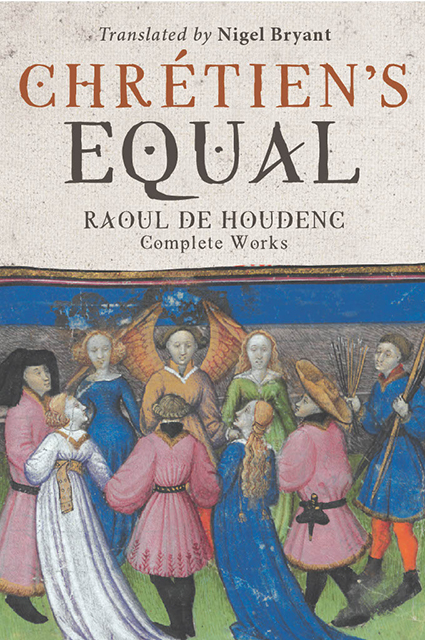Book contents
- Frontmatter
- Contents
- Introduction
- The Romance of the Wings (Le Roman des Eles)
- Meraugis of Portlesguez (Meraugis de Portlesguez)
- Sir Gawain and the Avenging of Raguidel (La Vengeance Raguidel)
- The Burgess’s Burgeoning Blight (Le Borjois Borjon or Li Dis Raoul Hosdaing)
- The Dream of Hell (Le Songe d’Enfer)
- The Path to Paradise (La Voie de Paradis)
- Index to Meraugis of Portlesguez
- Index to The Avenging of Raguidel
- Arthurian Studies
Meraugis of Portlesguez (Meraugis de Portlesguez)
Published online by Cambridge University Press: 14 January 2023
- Frontmatter
- Contents
- Introduction
- The Romance of the Wings (Le Roman des Eles)
- Meraugis of Portlesguez (Meraugis de Portlesguez)
- Sir Gawain and the Avenging of Raguidel (La Vengeance Raguidel)
- The Burgess’s Burgeoning Blight (Le Borjois Borjon or Li Dis Raoul Hosdaing)
- The Dream of Hell (Le Songe d’Enfer)
- The Path to Paradise (La Voie de Paradis)
- Index to Meraugis of Portlesguez
- Index to The Avenging of Raguidel
- Arthurian Studies
Summary
Anyone setting heart and mind on composing verse is wasting his time unless he devotes his efforts to the kind of tale that will continue to be worth telling: satisfaction comes from composing work on matter of lasting worth. A good story-teller recounts only truly good tales. Those others, the composers of parody and satire, I’ll tell you what their stuff amounts to: nothing! Their work, their words, are valueless. Provocative contrarians like them never say what they truly think; if they’ve any real wisdom or genuine insight they keep it to themselves.
That’s why Raoul, for his part, means to use what little talent he has to compose a new story that will always be worth reciting – and one that will never die: as long as this world lasts, this tale will continue to be highly valued. It’s the story of Meraugis, the doer of the deeds I’ll now recount. And unless my telling of it goes awry, it contains not a hint of baseness: it’s a tale of courtesy, full of good and pleasing thought. And only the courteous, those of worthy qualities, are fit to hear the tale I mean to tell!
In the days of the mighty King Arthur, there was a king in Britain who possessed vast lands: the king of Escavalon who, as the story of the Grail attests, was more handsome than Absalom. And this king, valiant and loyal and strong in men and allies, had a most precious daughter, a damsel by the name of Lidoine. There was no woman so beautiful from there to the edge of Macedon – all other young beauties would have looked wretchedly plain beside her! So I’d like to describe her as beautifully as I can – but she was the loveliest scion that God ever had Nature bring forth, so I’m not sure I’ll ever be able to convey her beauty fully!
But her head was a perfect picture, her hair more golden than the feathers of the oriole, her forehead high and smooth and shapely. Her brown eyebrows were faultless, as if they’d been traced by hand, their curving arc and the space between quite perfect.
- Type
- Chapter
- Information
- Chrétien's Equal: Raoul de HoudencComplete Works, pp. 47 - 124Publisher: Boydell & BrewerPrint publication year: 2021

